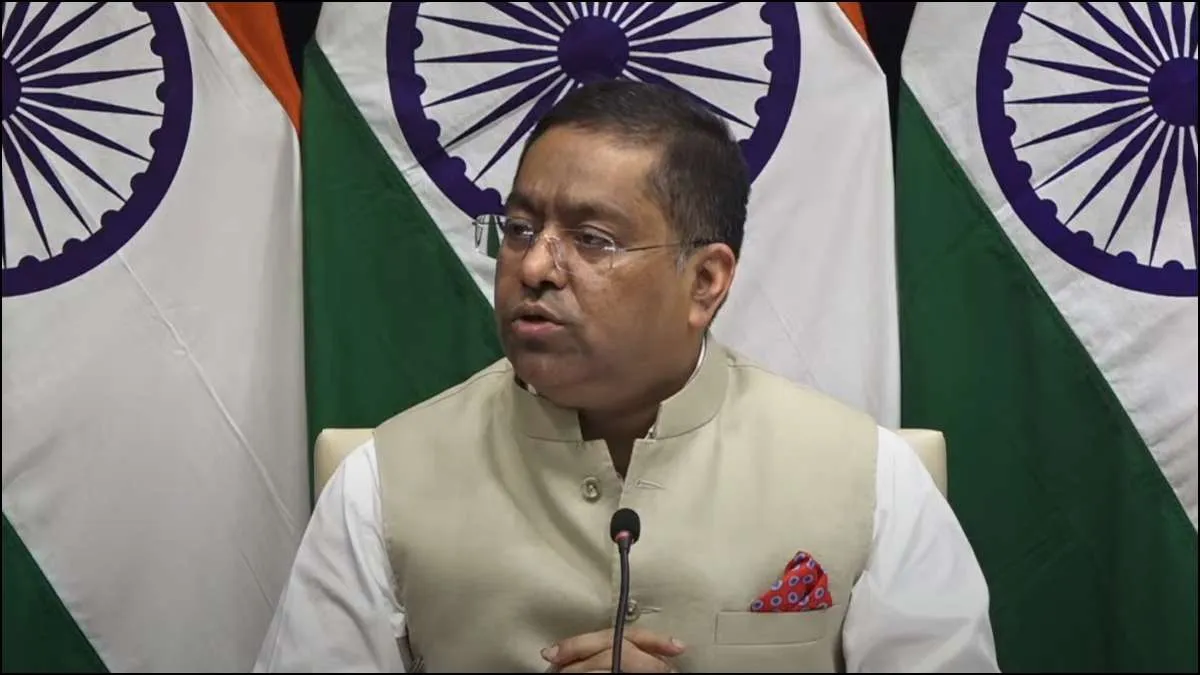New Delhi: India on Thursday rejected a report by the US Commission on International Religious Freedom (USCIRF) accusing it of 'systemic and egregious violations" of religious freedom in the country, calling it a "biased organisation" with a political agenda that "continues to misrepresent facts and peddles a motivated narrative about India".
"Our views on the United States Commission on International Religious Freedom (USCIRF) are well known. It is a biased organization with a political agenda. It continues to misrepresent facts and peddles a motivated narrative about India. We reject this malicious report, which only serves to discredit USCIRF further," said the Ministry of External Affairs in an official statement.
The MEA urged the USCIRF to desist from "agenda driven efforts" and advised it to utilise its time more productively on addressing human rights issues in the United States.
What did the USCIRF report say on India?
The USCIRF 2024 report recommended the US government to designate India as a “Country of Particular Concern" for alleged "systematic, ongoing and egregious violations of religious freedom". It claimed religious freedom conditions in India had deteriorated, citing the tribal violence between the Kuki and Meitei communities in Manipur.
It also recommended targeted sanctions on individuals and entities responsible for severe violations of religious freedom by freezing those individuals’ assets or barring their entry into the United States. It said the US Congress should raise religious freedom and issues affecting religious minorities in India through hearings, briefings, letters, delegations, and other activities.
These reports have attracted India's scorn amid an upswing in bilateral relations between New Delhi and Washington. Recently, External Affairs Minister S Jaishankar commented on foreign interference, saying, "It cannot be that one democracy has a right to comment on another and that's part about promoting democracy globally, but when others do that, then it becomes foreign interference."
"The US and India are among the world's leading countries with democratic forms of government. Here in the US our democracy, which includes much debate about many issues, sometimes features political leaders in the US making comments about democracy in India... So, it's a testy area and my personal view, which I have shared with many, you have every right to comment, but I have every right to comment on your comment," he said at the Carnegie Endowment for International Peace, a top American think-tank.
India on past US reports on religious freedom
India has previously criticised US reports on religious freedom for being driven by vote bank considerations and a prescriptive outlook, while being ignorant of several instances of hate crimes, racial attacks and targeting places of worship against Indians in the US. In June, India said the organisation "lacks an understanding of India's social fabric" and relies on a "mix of imputations, misrepresentations, selective usage of facts, reliance on biased sources, and a one-sided projection of issues"
This came after the 2023 report by the US State Department mentioned "violent attacks on minority groups", especially Muslims and Christians, including killings, assaults and vandalism of houses of worship. The report said that senior US officials had raised concerns about religious freedom issues with their Indian counterparts.
Meanwhile, MEA spokesperson Randhir Jaiswal said the US has even more stringent laws and regulations and would surely not prescribe such solutions for itself. He said human rights and respect for diversity have always remained a legitimate subject of discussion between India and the United States. He also highlighted several incidents of violence against the Indian community in America.

